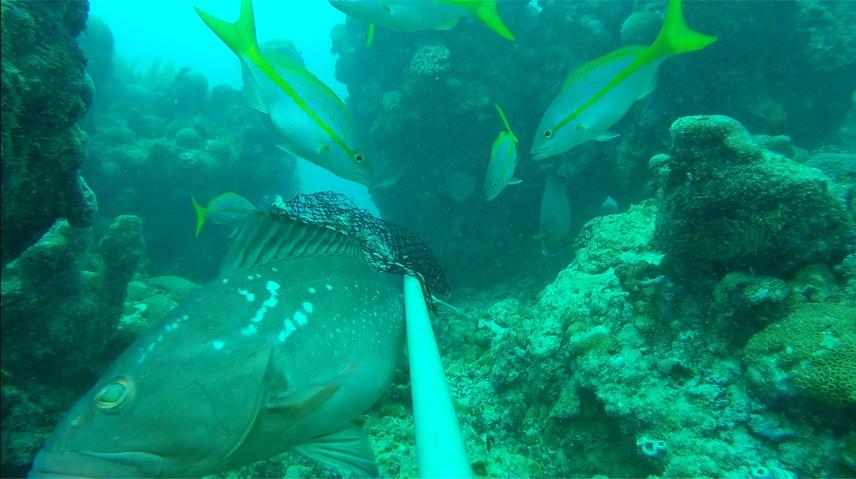Maisha Gragnolati Fernandes
Camamu Bay is the third-largest bay in Brazil and one of the few larger embayment in the South Atlantic Ocean with relatively low coastal development impacts. Artisanal fishing in Camamu Bay is a historical activity, with hundreds of native families depending on it as a primary income source, making it a crucial contributor to food security and poverty alleviation. Traditional communities play a crucial role in conservation efforts and can also provide valuable historical information about local diversity. However, this activity is undervalued, operating in a territory lacking proper planning and regulation, and they are losing ground to expanding predatory and elite tourism, real estate speculation and gentrification. These unregulated activities not only significantly affect the lives of local traditional communities but also impose severe impacts on natural environments.

Red grouper (Epinephelus morio) and Yellowtail snapper (O. chrysurus). © José Amorim Reis-Filho
In this scenario, we will provide a comprehensive understanding of the historical and current conservation status of artisanal fishing activities and their interconnection with shallow and mesophotic reefs ins Camamu Bay and the continental shelf. These ecosystems are heavily relied upon by fisheries, providing tons of fishes and other fishing resources, yet they have not undergone any assessment. There is also an absence of scientific description for mesophotic reefs, representing a gap in reef ecology in the South Atlantic Ocean. By combining traditional and scientific knowledge we can generate robust evidence, enhancing the credibility of findings and facilitating better-informed conservation decision-making. Furthermore, in a scenario where traditional cultural practice are overshadowed by other exclusionary activities, involving local communities in conservation efforts can give visibility and encourage social organization in support of preserving their rights.